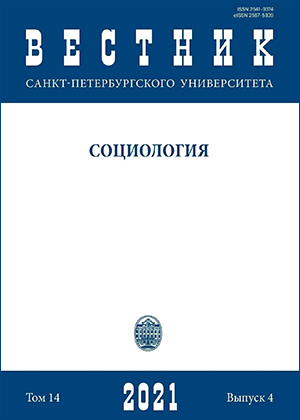Post-apocalyptic environment and its reinterpretation in Death Stranding
DOI:
https://doi.org/10.21638/spbu12.2021.403Abstract
Before becoming a reality, the technological environment exists in the projects and intentions of people. Sociologist S.Jasanoff offers the concept “sociotechnical imaginary”, which means ideas about the value of technologies and their future contribution to social development. The authors analyze some futuristic environment elements in the computer game Death Stranding based on this concept. The game embodies avant-garde solutions for establishing social communication infrastructure in a post-apocalyptic world. Death Stranding’s semantic emphasis, which was released before the pandemic, anticipated many of the risks and sentiments from the physical and social barriers of the COVID-19 period. The authors use Russian-language streams dedicated to Death Stranding as empirical material for the case analysis. The authors review the academic experience of those who have already studied the post-apocalypse presented in various popular texts (movies, novels, computer games). In mass culture stand out the narrative and visual templates of the post-apocalypse: division of spaces and characters into “spoiled/infected” and “pure”; wandering; attention to unusual details of everyday life and world order, aestheticization of ruins. When discussing habitat in Death Stranding, there are clear solidarizing and eco-friendly landmarks in the game narrative and mechanics: minimalistic consumption and the importance of recycling, discovery of new renewable resources, cooperative usage of infrastructure, the ineffectiveness of violence. According to the authors, the game’s habitat model brings new insights into contemporary sociotechnical imaginary.
Keywords:
social imaginary, computer games, environment, post-apocalypse, infrastructure, Death Stranding
Downloads
References
References
Downloads
Published
How to Cite
Issue
Section
License
Articles of "Vestnik of Saint Petersburg University. Sociology" are open access distributed under the terms of the License Agreement with Saint Petersburg State University, which permits to the authors unrestricted distribution and self-archiving free of charge.




